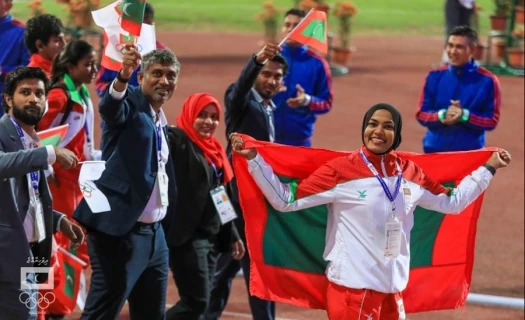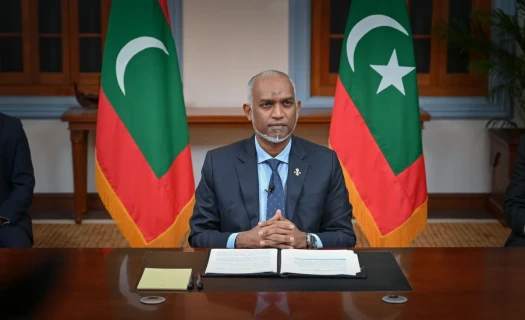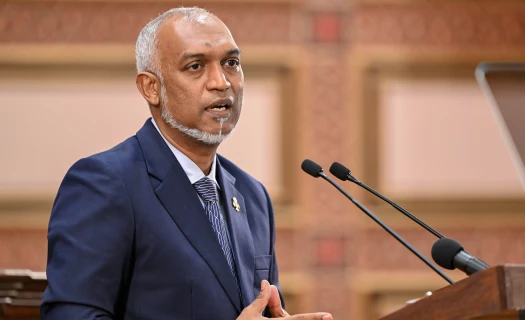Fri, 06 Feb 2026
|DHIVEHI
Ramadan near and far: Maldivians reflect on fasting at home and abroad
18 Mar 2025
|

An Iftar spread --- Photo: Muslim Aid
As dusk falls over the Maldives, families hurry home, with the call to prayer signalling the end of another day of fasting. Just moments before, the streets buzzed with activity – one of the rare times during Ramadan when the islands, including the capital Malé City, pulse with such liveliness. This energy quickly fades as homes come alive, filled with families gathering for iftar.
For Maldivians abroad, however, Ramadan feels different. Thousands of miles from home, iftar takes place in dorm rooms, office cubicles, or unfamiliar kitchens. Some break their fast alone with simple meals, while others find comfort in small communities. Yet, the longing for home lingers – a craving not easily satiated
Ramadan at home vs. abroad: A shift in pace
"What I miss most about Ramadan in the Maldives is how everything slows down," shares a student in Malaysia. "Here, it just feels like any other month."
This sentiment is echoed by many Maldivians living abroad. A former student in Ireland reflects, "The biggest thing I missed was the ‘roadha’ vibe – that unique atmosphere in Malé when everything quietens down."
She elaborates, "In Ireland, most of the Muslim community consisting of immigrants. While mosques hold iftar gatherings, the spirit feels more subdued compared to home."
In the Maldives, a 100 per cent Muslim nation, Ramadan profoundly transforms daily life. Government offices and businesses operate on reduced hours, and in the last ten days of the month, Government offices close entirely to allow people to focus on religious and spiritual activities. Schools adjust their schedules, and the entire country adopts a more relaxed pace, particularly during the day.
A student in Malaysia expresses frustration with the stark contrast: "Back home, everything slows down. Here, lectures, assignments, and deadlines just keep piling up."
Observing Ramadan in different cultural and religious settings
A former student who spent years in Australia and now works in Sri Lanka reflects on the difference between observing Ramadan in Muslim and non-Muslim countries.
"For the past ten years, I haven't been home for an entire Ramadan, and it's the time of year I feel most homesick," she says.
While Melbourne and Sydney have large Muslim communities, Maldivians still face challenges. "I've had to explain why I'm not eating lunch at work, why I can't even drink water. There are no mosques nearby, no adhan (call to prayer) to signal Maghrib. It's a lonely kind of Ramadan, but I find comfort in quiet moments of prayer and reflection."
She adds, "The Maldivian community in Melbourne is small and dispersed, making frequent gatherings challenging."
While Australia offers a different Ramadan experience, with strong Muslim communities from diverse backgrounds, the United Arab Emirates provides a unique blend of tradition and multiculturalism.
A Maldivian working in the UAE shares her perspective: "Growing up, Ramadan was filled with family, laughter, and food. We cooked together, ate together, and prayed together."
Although she misses the big family iftars, she has also found a new community. "My non-Muslim friends join iftars, eager to understand and accommodate. Ramadan has become a time of cultural discovery – new flavours, new traditions – but with the same essence of togetherness."
Sri Lanka, on the other hand, offers an experience that closely mirrors home.
"There are so many Maldivians here, and it's common to observe Ramadan just as you would in the Maldives," explains the Maldivian working in Sri Lanka. "Certain areas, like Dehiwala, have regular iftars and food exchanges, as well as Eid gatherings, which feel a lot more informal compared to those in Melbourne."
The comfort of familiar flavours
Food plays a significant role in Ramadan, no matter where one is. Traditional Maldivian iftar spreads typically feature dishes that hold both culinary and cultural significance.
"Back home, iftar feels more special with hedhikaa like gulha, bajiyaa, masroshi, keemiya, and all the good stuff, plus proper home-cooked meals," explains a student in Malaysia.
Many agree that "iftar feels incomplete without those familiar flavours."
Finding the ingredients to prepare Maldivian dishes abroad can also be a challenge – unless you are one of those resourceful Maldivians who pack a case of canned tuna and other essentials just in time for Ramadan.
The former student in Australia recalls, "The one thing we struggled to get was fresh fish, but we made do. Another hard-to-find staple was githeyo mirus (scotch bonnet). In Australia, you can't import them as is, so I ended up making a githeyo mirus sauce while visiting home and bringing it back."
While nostalgia for Maldivian dishes remains strong, many have also discovered new culinary traditions to appreciate. A Maldivian student in Malaysia highlights the silver lining of her experience: "I love the Ramadan Bazaars, with their incredible variety of food – murtabak, nasi kerabu, roti john – and the lively atmosphere."
These Ramadan Bazaars are a distinctive feature of Malaysia's Ramadan celebrations, where streets transform into vibrant food markets. Hundreds of stalls offered an astonishing variety of dishes reflecting Malaysia's diverse cultural heritage. For many Maldivians in Malaysia, these bazaars became an anticipated ritual, offering both comfort and cultural exchange during a time when homesickness can be particularly strong.
Community and family bonds
Perhaps more than the food, it is the absence of family and community bonds that Maldivians abroad feel most deeply.
"Iftar isn't just about eating; it's about breaking fast together, joking with my brother, and fighting over the last cutlet," says a student in Malaysia.
The Ireland-based Maldivian reflects on this missing sense of connection: "I missed having people over for iftar and taraweeh, and everyone sending food to each other. Abroad, it can feel isolating."
A Maldivian working in Malaysia echoes this feeling, reflecting on the universal "grass is greener" experience: "Ramadan here feels different. Sometimes it's lonely, but when you find a sense of community, you also find a sense of belonging."
The spirit of Ramadan across borders
As the last days of Ramadan approach, Maldivians abroad hold onto small rituals that connect them to home.
"No matter where I am, the spirit of Ramadan remains the same – a time of worship, kindness, and connection," a student in Malaysia summarises.
For Maldivians in Malaysia, Eid is just around the corner. While many long to celebrate with family back home, Malaysia's vibrant Hari Raya Aidilfitri festivities provide a unique experience. Cities and villages lit up with decorations, and open houses welcomed guests with rendang, ketupat, and kuih raya. The celebrations stretched beyond a single day, creating an atmosphere of warmth and community – reminding Maldivians that home is not just a place, but a feeling carried within.








